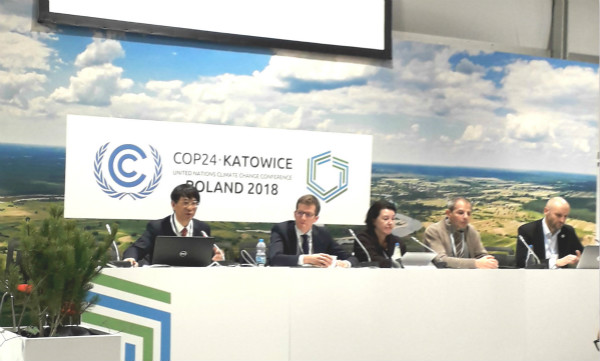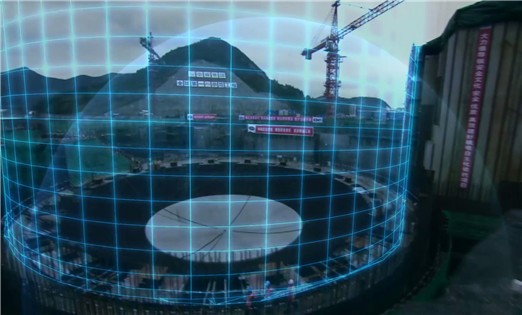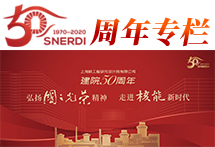SNERDI was invited by IAEA to attend COP24
On December 5, 2018, Chief Designer of CAP1400, and President of Shanghai Nuclear Engineering Research & Design Institute (SNERDI), Dr. Zheng Mingguang, was invited by IAEA Director General Yokiya Amano to attend the 24th Conference of the Parties to the United Nations (UN) Framework Convention on Climate Change (COP24), and deliver a speech during the UN Side Event on SDG7: Clean and Affordable Energy for Sustainable Urbanization and Development.
One of the most important tasks for COP24 will be to work out and adopt a package of decisions ensuring the full implementation of the Paris Agreement*, in accordance with the decisions adopted in Paris (COP21) and in Marrakesh (CMA1.1). President of the Republic of Poland, Andrzej Duba, the UN Secretary-General António Guterres, and over 28000 guests attended the conference.
COP24 UN Side Event invited representatives from World Energy & Meteorology Council (WEMC), Microsoft, Nuclear4Climate and IAEA to explore the transitions needed to provide reliable access to clean energy in rapidly developing urban centers and smart, green megacities.

Dr. Zheng presented that nuclear energy was indispensable and upgrading in the world. Advanced nuclear system will be the smart choice for megacities energy supply due to its multiple applications on electricity, heating, steam, desalination, and refrigeration. The ‘Near zero discharge, Near zero risk, Low carbon, Zero pollution’ characteristics of advanced passive nuclear reactors could meet the demanding of future megacities development, and solve the problems on environmental pollution.
He pointed out that ultimate energy source of the earth came from nuclear, and the development of nuclear energy was the eternal theme of mankind. Meanwhile, sustainable society needs sustainable energy system and healthy proportion of energy supply. Advanced nuclear system can provide integrated energy solutions for the entire world that we are guarded together.

During the panel discussion, Dr. Zheng and other experts shared their opinions and experiences on how to upgrade the infrastructures to ensure an adequate and secure energy supply, the role of integrated energy solutions to create synergies in the supply of electricity and energy carriers in megacities, and how optimal energy planning, policies, and data analysis can help countries to overcome barriers and facilitate development of climate-smart solutions for urban centers.
* The Paris Agreement central aim is to strengthen the global response to the threat of climate change by keeping a global temperature rise this century well below 2 degrees Celsius above pre-industrial levels and to pursue efforts to limit the temperature increase even further to 1.5 degree Celsius.




